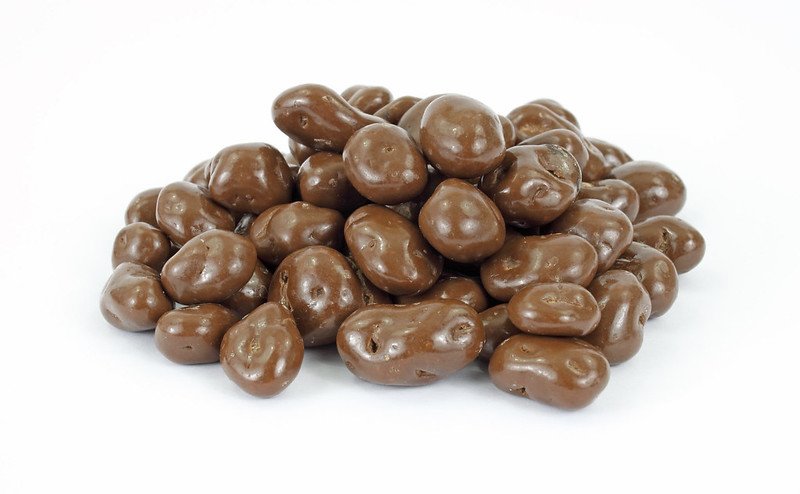TODAY we celebrate a delicious treat that people love but don’t get recognition for, the Chocolate Covered Raisins.
The history of chocolate-covered raisins can be traced back to the 1920s when the Blumenthal Brothers Chocolate Company in Philadelphia, Pennsylvania began producing a product called Raisinets. Raisinets are still a popular brand of chocolate-covered raisins today.
Chocolate-covered raisins are typically made by first coating the raisins in a layer of chocolate. The chocolate can be milk, dark, or white, and may be flavored with additional ingredients such as vanilla or caramel. Once the chocolate has cooled and hardened, the raisins are ready to be enjoyed.
In addition to being a tasty snack, chocolate-covered raisins also have some nutritional benefits. Raisins are a good source of fiber and antioxidants, while chocolate contains flavanols that may have heart-healthy benefits when consumed in moderation.
Nestle purchased the rights to manufacture Raisinets in 1984. Every single chocolate-covered Raisinet is polished to make it shine. A special seedless grape grown in California is used for making chocolate-covered raisins sold in the U.S.
Overall, chocolate-covered raisins are a delicious and popular treat that has been enjoyed for many years. Grab a box or a handful and enjoy some chocolate-covered raisins while having funds with friends.
1989 Exxon Valdez crashes, causing one of the worst oil spills in history
One of the worst oil spills in U.S. territory began when the supertanker Exxon Valdez, owned and operated by the Exxon Corporation, runs aground on a reef in Prince William Sound in southern Alaska. An estimated 11 million gallons of oil eventually spilled into the water. Attempts to contain the massive spill were unsuccessful, and wind and currents spread the oil more than 100 miles from its source, eventually polluting more than 700 miles of coastline. Hundreds of thousands of birds and animals were adversely affected by the environmental disaster.
It was later revealed that Joseph Hazelwood, the captain of the Valdez, was drinking at the time of the accident and allowed an uncertified officer to steer the massive vessel. In March 1990, Hazelwood was convicted of misdemeanor negligence, fined $50,000, and ordered to perform 1,000 hours of community service. In July 1992, an Alaska court overturned Hazelwood’s conviction, citing a federal statute that grants freedom from prosecution to those who report an oil spill.
(excerpted from https://www.history.com/this-day-in-history/exxon-valdez-runs-aground)


